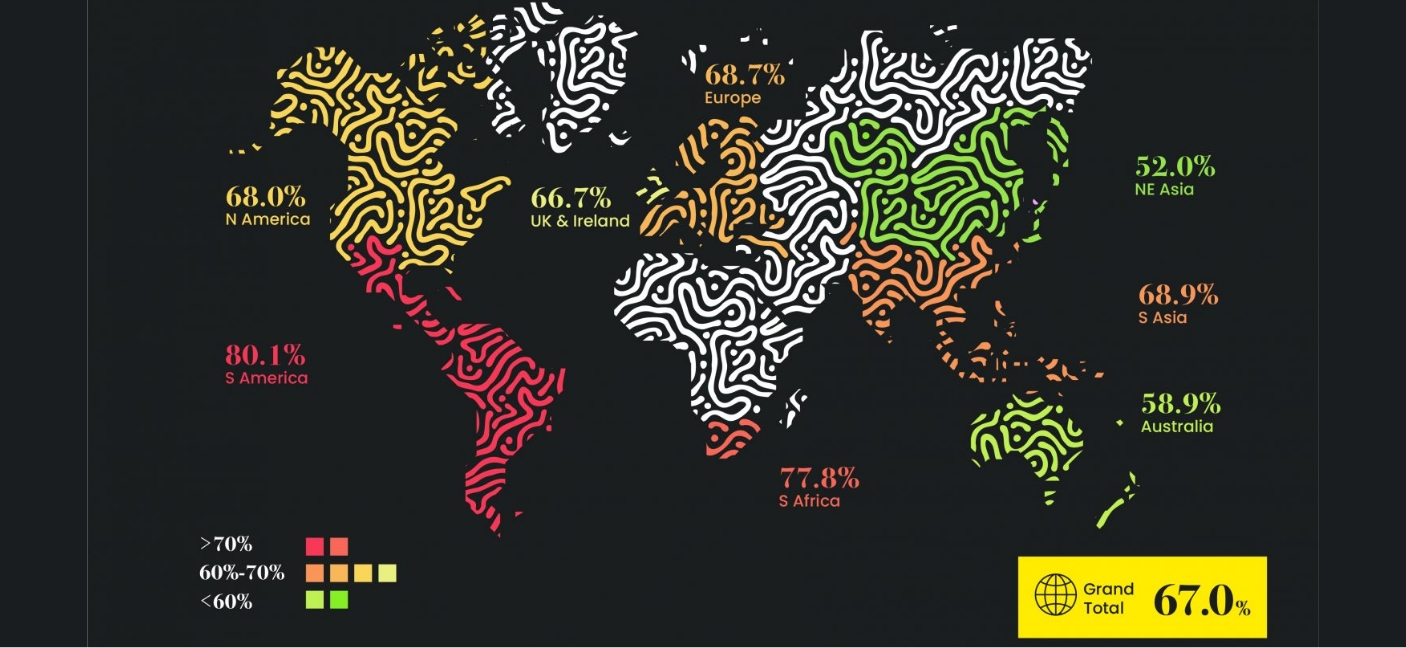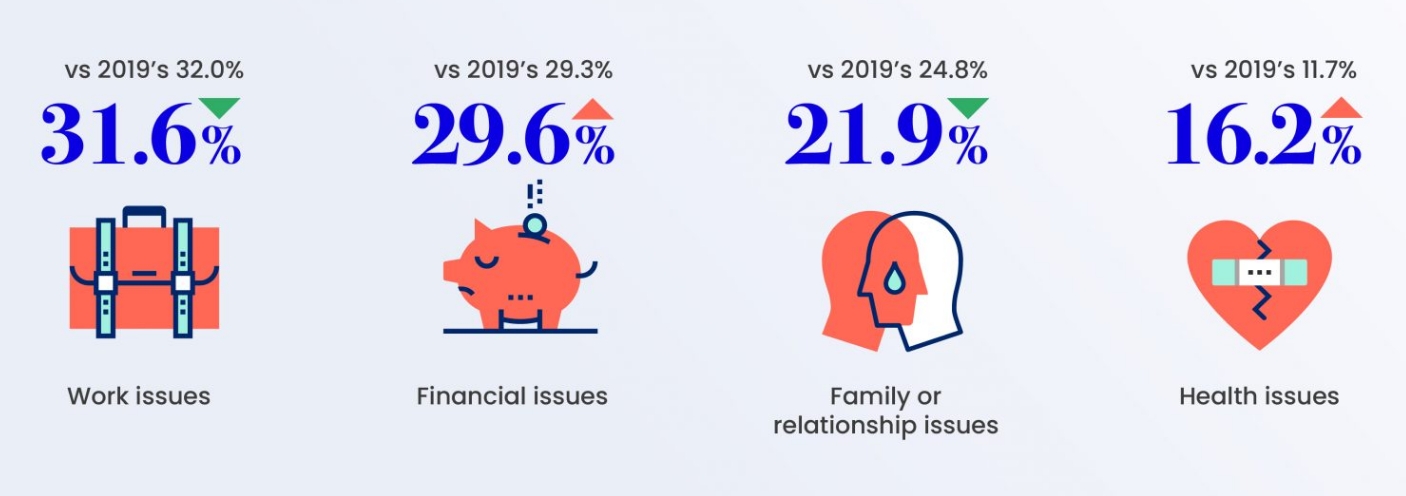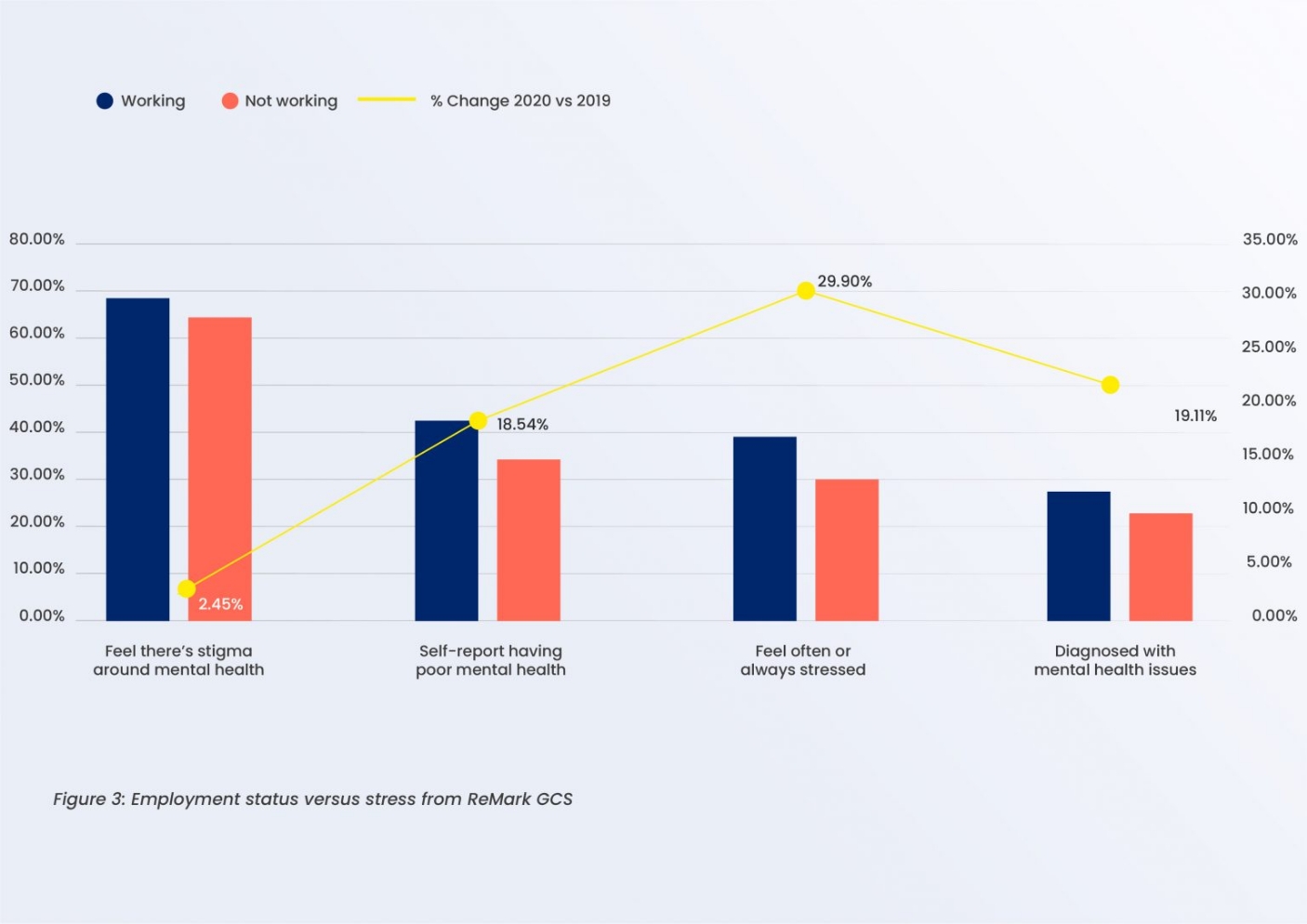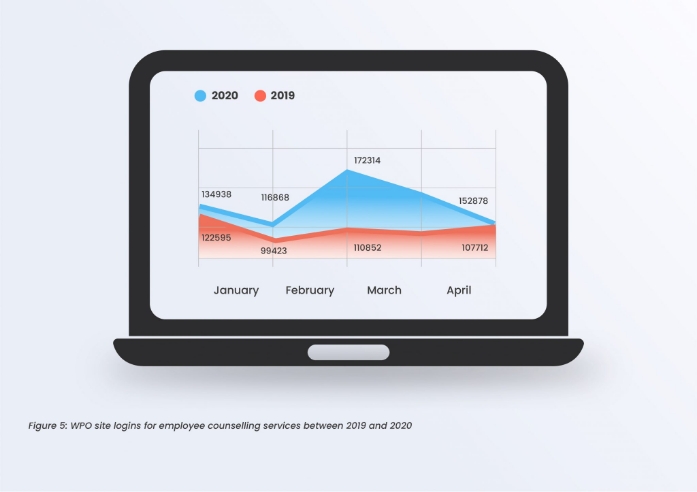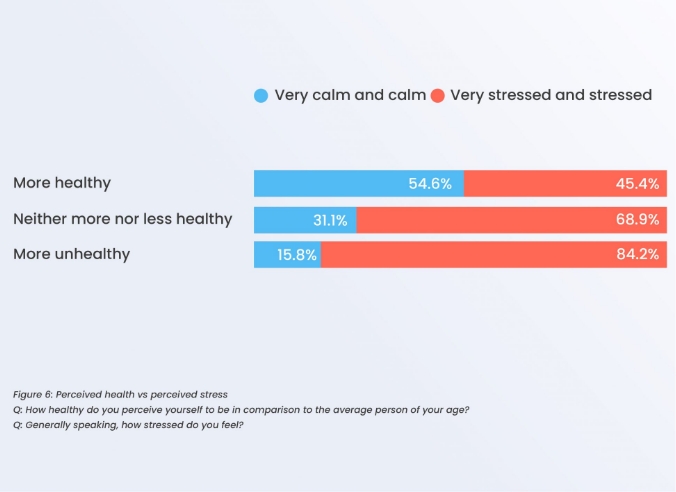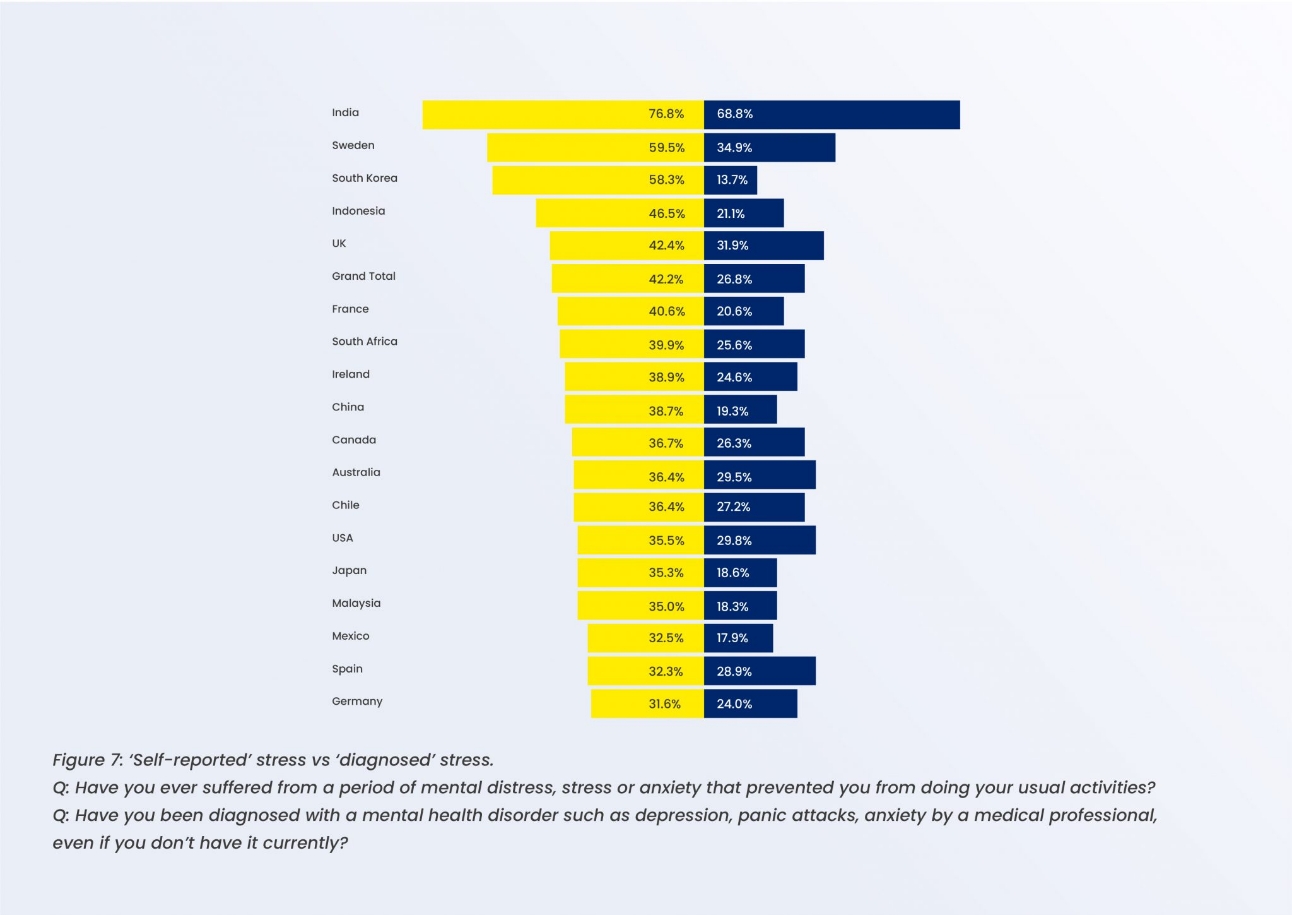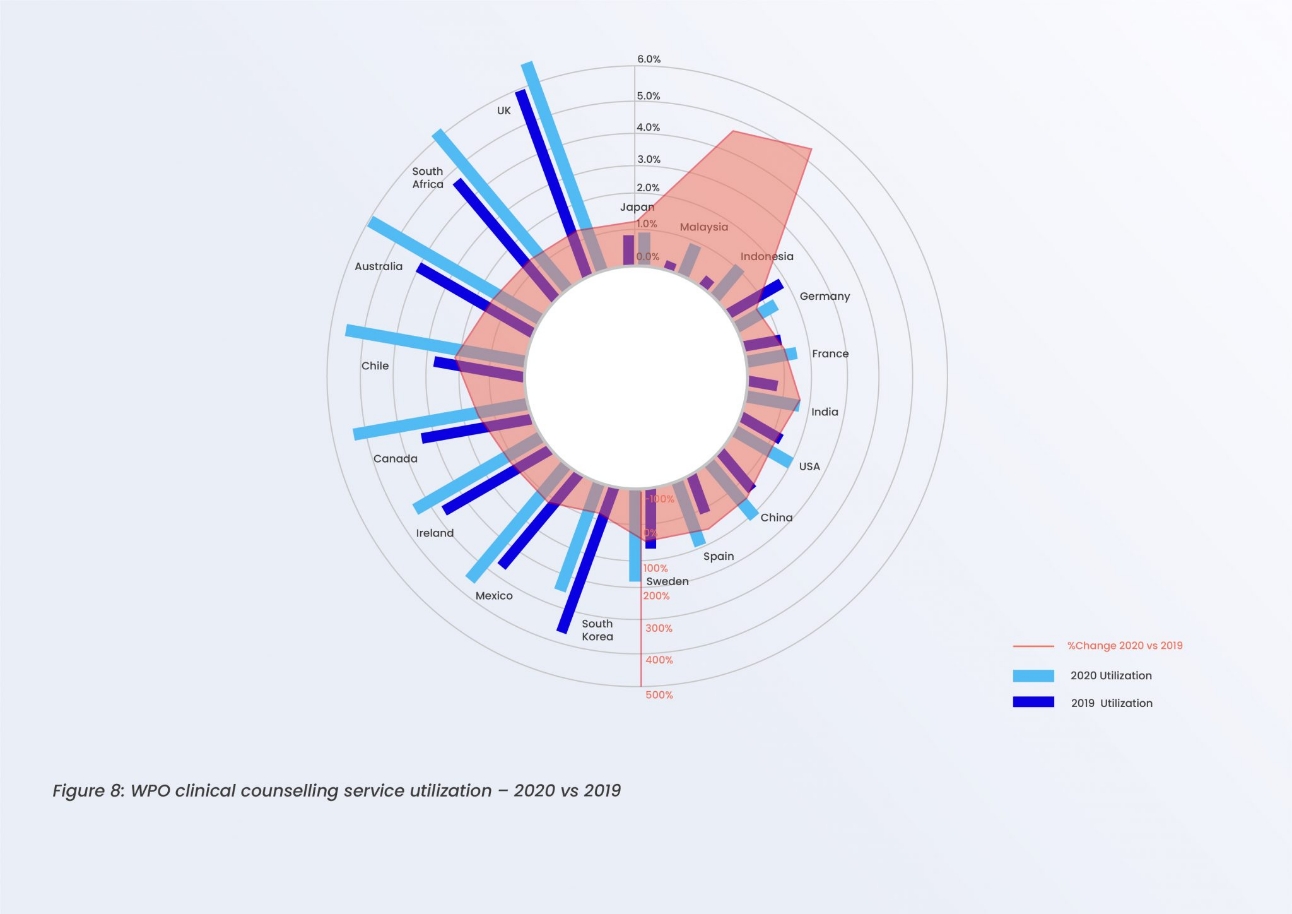Stressed? You’re not alone. We’re more aware of our own mental health in recent years, not least during the pandemic. But many are finding it harder to cope than ever before, especially when it comes to work.
In this joint report by Workplace Options (WPO) and ReMark, we explore ReMark’s 2020 Global Consumer Survey (GCS) on health and wellness and WPO’s practical stress counseling data to shed light on stress at work—and why staying positive is bigger than a battle of the mind.
Making progress on mental health
You’ve probably heard more about stress and mental health than ever before. The Global Burden of Disease study estimated that, in 2017, 792 million people lived with a mental health disorder; over one in ten people globally (10.7%)[1]. Worldwide, the statistics show that regardless of age, sex, ethnicity and religion, no one is immune to the burdens of stress.
Covid-19 is a physical fight for those infected, and a real mental journey for everybody. Although ReMark’s latest GCS finds that most respondents declare that there is still stigma around mental health (Fig.1), the pandemic has brought an opportunity to open up on mental health.
Public campaigns from brands or governments are encouraging a change of emphasis on the issue, raising awareness and encouraging people to talk about with mental illness. Just look at ‘Time to talk’ in the UK, ‘#EarForYou’ in India or ‘R U OK?’ in Australia and New Zealand. After years of chronic underfunding, there seems to have been a recent decisive change to invest more in mental health services, expanding the range of support and improving the quality of care offered. As an example, the 2020 theme for World Mental Health Day had the tagline, interestingly enough, of Let’s Invest.
According to ReMark’s GCS 2020, more than 1 in 3 of us feel often or always stressed; and 40% have reported having suffered from a period of mental distress. Moreover, these issues impact us all differently. Women and younger generations are disproportionally affected by mental health issues, with Gen Z and Millennials four times more likely than the Silent Generation (broadly, 75+) to have experienced a period of anxiety or stress.
Blame it on your job
Let’s turn to the causes of stress. Among the common candidates—work, money, family and health, which are inevitably impacting each other—stress seems more prevalent for the employed (Fig 2).
Perhaps paradoxically, when comparing employed and unemployed populations, the figures highlight a marked difference, showing heightened stress levels among those working. People in employment:
- 29.9% of employed people are more likely to feel often or always stressed
- 18.5% are more likely to self-report having poor mental health
- 19.1% are more likely to be diagnosed with mental health issues
As WPO provides services exclusively to employees worldwide, it allows us to dive deeper into the data behind counseling requests at work. In 2020, for employees who used the service, nearly 80% did so due to stress, followed by low mood and anxiety.
Dealing with stress: a complex battle
Stress is a personal and complex matter. Fortunately, it appears there’s more awareness and willingness to seek help. Analysis from Workplace Options reveals that at the beginning of the pandemic in March 2020 alone there was a 55% year-on-year increase in the number of logins to WPO’s online clinical support website (Fig. 5).
Nearly 9 in 10 people worldwide believe physical and mental health are linked. There is a clear correlation of self-perception of healthiness and stress. When people feel calm, they tend to feel more healthy, and vice versa (Fig. 6).
Having established the stigma surrounding mental health (Fig. 1), the GCS data finds a discrepancy between people who reported to have suffered from stress (42.2%), versus those who have gone for a formal diagnosis (26.8), as illustrated in Figure 7.
This is coherent with WPO’s figures on the usage of online counseling globally. Although there was a tenfold increase in March/April 2020, the total number of people taking up the services only accounted for less than 3% of all employees who were offered the service. This differs however depending on the country (Fig. 8). Further analysis is required to understand how effective this service will be as we transition to a more digital way of life.
Wrapping up
Financial and work issues, as ReMark has identified, are the most significant cause of stress in our lives globally. But dealing with them is a complex issue. We have found that:
A majority of people make a clear link between physical and mental health. People’s self-perception of stress has a direct impact on their self-perception of overall healthiness
The pandemic led to a heightened awareness of mental health issues, including stress and anxiety. This was more prominent among women and younger generations.
There is an overwhelming stigma around mental health and ‘psychological’ barriers to seek professional help are still high. Combining consumer trend data and ‘real-life’ data from a professional counseling service allows us to understand people better, and the underlying causes of mental health. These findings show the necessity of building partnerships across ecosystems. By partnering with different sectors including public authorities, medical/service providers, companies, insurers, health actors and charities, we can not only raise awareness, but also better educate people on how to simply be aware of their emotional health.
About ReMark
ReMark helps insurers worldwide grow sustainably. Part of the SCOR Group, ReMark has 37+ years of experience in data intelligence, marketing and tech solutions. We’ve carried out over 12,000 insurance marketing campaigns by phone, mail, digital and SMS, reaching 1 billion people around the world, and develop industry-leading tech products. Since 2014, ReMark publishes an annual Global Consumer Study (GCS) offering the freshest insights and analysis on attitudes to life insurance. We look at topics consumers care about like Covid-19, technology and mental health.
Find out more: www.remarkgroup.com
Disclaimer: This document is intended for general information only. It does not provide the reader with specific direction, advice, or recommendations. You may wish to contact an appropriate professional for questions concerning your particular situation.






















